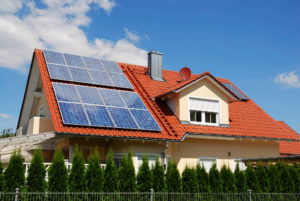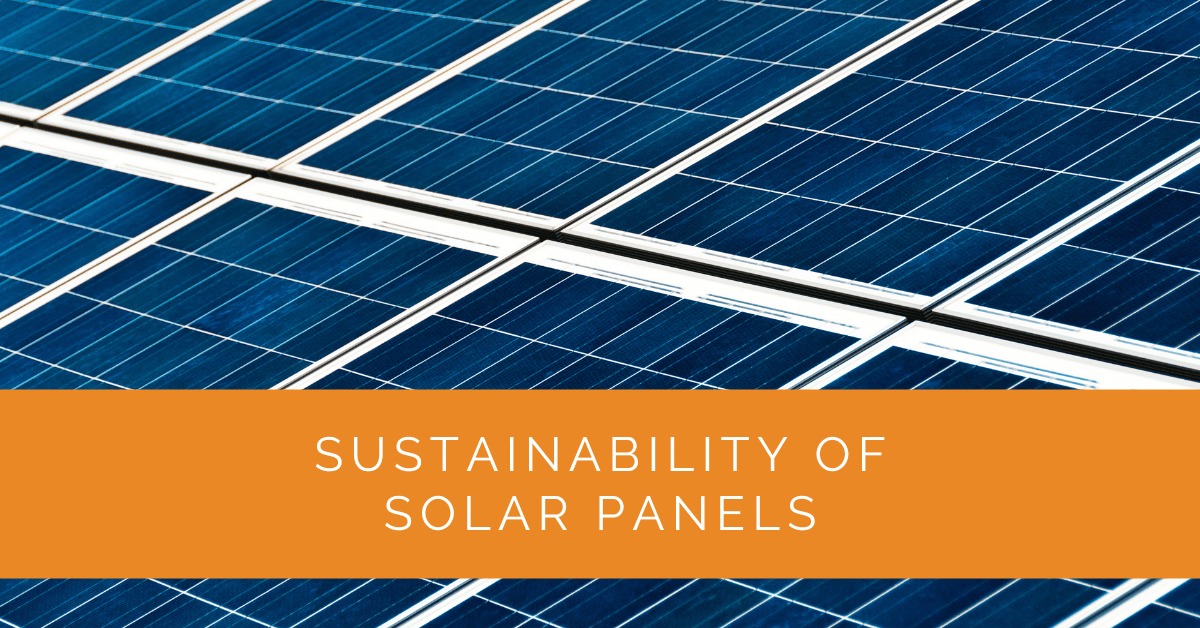In the face of climate change and environmental concerns, sustainable energy sources have become paramount. Solar panels, a key player in the renewable energy landscape, offer immense potential for a sustainable future.
Contents
Key Takeaways
- Solar panels offer a sustainable and renewable energy source, reducing carbon emissions and combating climate change.
- Proper recycling practices and life cycle assessments ensure the environmental sustainability of solar panels.
- Solar energy provides economic benefits, including long-term cost savings and independence, while promoting inclusivity and resilience in our energy systems.
Understanding Solar Energy and Sustainability
Solar Energy and Renewable Resources
Solar energy harnesses the power of the sun to generate electricity. Unlike fossil fuels, solar energy is renewable, as the sun’s rays provide an inexhaustible supply. By tapping into this abundant and clean energy source, we can reduce our reliance on non-renewable resources and minimize the environmental impact of traditional energy production.
Photovoltaic Technology
At the heart of solar panels lies photovoltaic (PV) technology. PV panels contain solar cells that convert sunlight directly into electricity. These cells are made of semiconductors, typically composed of silicon, which can generate an electric current when exposed to light. This process, known as the photovoltaic effect, enables solar panels to generate clean and sustainable energy.
Environmental Impact of Solar Panels
Reduced Carbon Footprint
One of the most significant advantages of solar panels is their ability to reduce carbon emissions. Traditional electricity production heavily relies on fossil fuels, releasing greenhouse gases and contributing to global warming. In contrast, solar panels produce electricity without emitting harmful gases, effectively reducing our carbon footprint and mitigating climate change.
Materials and Recycling
Concerns have been raised about the potential environmental impact of solar panels due to the materials used in their construction. While solar panels contain certain elements like cadmium or lead, they are typically present in very low quantities and are safely encapsulated within the panel structure. However, ensuring proper recycling practices for end-of-life panels is crucial to prevent potential environmental hazards. The solar industry is actively developing recycling programs to manage and recycle decommissioned panels responsibly, minimizing waste and promoting sustainability.
Life Cycle Assessment
To assess the overall environmental impact of solar panels, life cycle assessments (LCAs) are conducted. These assessments evaluate the environmental aspects associated with the entire life cycle of solar panels, including raw material extraction, manufacturing, transportation, installation, operation, and end-of-life disposal. LCAs have consistently shown that the environmental benefits of solar panels far outweigh their initial environmental costs, making them a sustainable choice for energy production.

Economic and Social Sustainability
Cost of Solar Panels
Solar panels have become increasingly cost-effective over the years, making them a financially viable option for homeowners, businesses, and governments. While the upfront costs may vary, the long-term financial benefits are substantial. Solar panel owners can save on electricity bills, generate clean energy, and earn money through net metering or feed-in tariff programs. The cost-effectiveness of solar panels contributes to their long-term economic sustainability and widespread adoption.
Energy Independence and Resilience
Solar panels provide energy independence and resilience, allowing individuals and communities to reduce dependence on centralized energy sources. By generating their electricity, they can be less susceptible to power outages and fluctuations in energy prices. This energy independence fosters self-sufficiency, enhances energy security, and promotes resilience in the face of natural disasters or disruptions to the power grid.
Embracing Solar Panel Sustainability
Promoting Access to Solar Energy
To ensure a sustainable future, promoting access to solar energy for all communities is crucial. Various initiatives and programs aim to make solar energy accessible, particularly for low-income households and disadvantaged communities. By promoting inclusivity in the transition to renewable energy, we can ensure that a wider range of individuals and communities enjoy solar power’s benefits.
Government Support and Policies
Government support and policies are vital in driving solar panel adoption and sustainability. Incentive programs and regulations at the local, state, and national levels encourage using renewable energy sources like solar power. These policies can include financial incentives such as tax credits, grants, and rebates, making solar panel installations more affordable and attractive. Additionally, supportive policies can establish renewable energy targets, promote net metering programs, and facilitate streamlined permitting processes, all of which contribute to the growth and sustainability of the solar industry.
Expert Insights From Our Solar Energy Experts
Solar panels are a cornerstone of sustainable energy solutions. They harness an inexhaustible energy source and significantly reduce carbon emissions, making them essential in combating climate change.
Senior Environmental Engineer
Recycling and proper end-of-life management of solar panels are critical to maintaining their environmental benefits. The industry is advancing in this area, ensuring that solar panels remain a sustainable choice from production to disposal.
Renewable Energy Consultant
Government incentives and supportive policies play a pivotal role in making solar energy accessible and affordable. These initiatives are crucial for driving widespread adoption and ensuring the long-term sustainability of solar energy.
Policy Analyst
Experience Solar Excellence with Us!
Trust in Solar Panels Network USA, where our seasoned experts deliver top-quality solar solutions for homes and businesses nationwide. With a legacy of countless successful installations and a commitment to sustainable energy, we’re your reliable partner in the solar journey. Ready for a brighter, eco-friendly future? Call us now at (855) 427-0058 and harness the power of the sun!
Conclusion
Solar panels have emerged as a sustainable and environmentally friendly solution to our energy needs. Solar energy offers numerous benefits by harnessing the sun’s power, from reducing carbon emissions and combating climate change to providing long-term cost savings and energy independence. Moreover, the environmental impact of solar panels is being carefully managed through proper recycling practices and life cycle assessments.
As we transition towards a cleaner and more sustainable future, it is crucial to embrace solar panel technology. We can collectively work towards a greener and more sustainable world by promoting access to solar energy, supporting policies, and adopting renewable energy solutions. Solar panels are a reliable and efficient renewable energy source. Still, they contribute to a cleaner environment, reduce reliance on fossil fuels, and pave the way for a brighter future powered by sustainable energy. Let us embrace the potential of solar panels and make sustainable choices that benefit both present and future generations.
FAQ
Are solar panels sustainable?
Solar panels are considered a sustainable energy solution. They harness the sun’s power, a renewable resource, to generate electricity. Their use reduces reliance on non-renewable energy sources and helps mitigate environmental impact.
How do solar panels support sustainability?
Solar panels support sustainability by providing a clean and renewable energy source. They generate electricity without emitting greenhouse gases, contributing to climate change mitigation. Their long lifespan and recyclability also ensure minimal environmental impact throughout their life cycle.
Are solar panels renewable or sustainable?
Solar panels are both renewable and sustainable. They are renewable because they utilize sunlight, an abundant and continuously available resource. They are sustainable because they offer an environmentally friendly alternative to fossil fuel-based energy generation, reducing pollution and greenhouse gas emissions.
About the Author
Solar Panels Network USA stands at the forefront of solar energy solutions, driven by a team of seasoned solar engineers and energy consultants. With over decades of experience in delivering high-quality solar installations and maintenance, we are committed to promoting sustainable energy through customer-centric, tailored solutions. Our articles reflect this commitment, crafted collaboratively by experts to provide accurate, up-to-date insights into solar technology, ensuring our readers are well-informed and empowered in their solar energy decisions.

